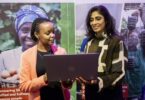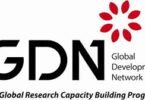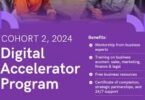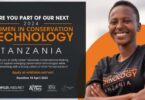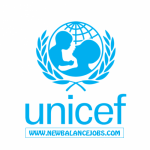
United Nations International Children's Emergency Fund (UNICEF)
National Consultants at the United Nations International Children’s Emergency Fund (UNICEF). Please ensure you read the job requirements before applying for this position.
United Nations International Children’s Emergency Fund (UNICEF) works in some of the world’s toughest places, to reach the world’s most disadvantaged children. To save their lives. To defend their rights. To help them fulfill their potential. Across 190 countries and territories, we work for every child, everywhere, every day, to build a better world for everyone.
We are recruiting to fill the position below:
Job Title: National Consultant to Support the Realisation of Rights-Based, Equity-focused and Gender-sensitive Situation Analysis (SitAn) of Children for Gombe State
Job No.: 552607
Location: Bauchi
Level: Consultancy
Contract Type: Consultancy
Categories: Social Policy
How Can you make a difference?
- Governments undertake Situation Analyses of Children and Women which contribute to national research and knowledge on children and women and form the basis for development of Country Programmes between governments and UNICEF.
- However, the absence of a comprehensive rights based SitAn which provides an analytical approach to understanding of the situation of children in Gombe state and an analysis of the gender and equity issues that continue to determine and, in many cases, hinder the realisation of positive outcomes for children remains a major gap.
- This will realise a SitAn that will bridge this gap and guide prioritisation of interventions for children by government and non-governmental actors and help to remove the bottlenecks to the realisation of child’s rights in the State.
- The SitAn report will therefore highlight strategic entry points in the national development process that will reduce disparities and address children vulnerability and contribute to shaping the national development agenda while accelerating the achievement of national and international development goals for children.
- A SitAn, conducted with respect to children’s and women’s rights or critical issues affecting their realisation, serves to increase understanding and to identify necessary remedial actions.
- The process is used to understand the causes of and linkages between problems affecting children and how a state’s human, social, economic and organisational resources and structures (including its laws, policies and institutions) can contribute to solving these problems.
- The SitAn flags disparities (geographic, ethnic, gender, etc.) that may be the cause of inequities in child outcomes and shed light on potential solutions to address them.
- By focusing on the key knowledge gaps related to inequities and child deprivations, and promoting the broad engagement of all stakeholders, the SitAn is intended to make an important contribution to shaping national development strategies to accelerate achievement of the child-related goals with equity”.
- The SitAn is meant primarily to be analytical, establishing causalities of non-realisation of child’s rights and responsible actors for realising the rights and making positive changes in the lives and well-being of children and women in the State.
- Reaching the SDG targets with equity, moreover, requires all development partners to intensify efforts to monitor programmes that serve the most disadvantaged children.
- By refocusing on equity, the SitAn will systematically examine patterns of inequities in the realisation of child’s rights including understanding their immediate, underlying, and structural causes.
- It is expected that this process will be done while ensuring involvement of all national stakeholders including MDAs, International partners, NGOs, private sector, media and communities.
- The process will build consensus on the status of indicators, analytical results including the use of nationally and internationally recognised data and standards. The process will be led by the Budget, Planning and Development Partner Coordination Office with involvement of national stakeholders including MDAs, civil society, international partners children and women.
- This is important for its effective contribution in guiding policy and strategy formulation, budget allocation, programme implementation, monitoring and evaluation.
- Thus, stakeholders’ involvement will be strategically planned and managed throughout the process.
- Given that a comprehensive SitAn is an effective foundation and platform of design for coherent public policy and effective public finance management, ensuring equitable access to essential social services and child-friendly cities, UNICEF seeks to recruit a national Consultant to support the realisation of SitAn in Gombe State substantively
Purpose, Scope and Objectives of the Analysis
- The general objective is to enable Gombe State to have a comprehensive situation analysis of children in the State by December 2021.
- The SitAn will provide an evidence-based analytical report on the situation of children in the State that would serve as a reference document to improve the understanding of all stakeholders, including decision-makers and other partners on the current status of child’s rights in the State, the causes of shortfalls and inequities.
- It would then help develop effective and efficient policy and programmatic interventions and serve as a powerful tool to guide advocacy, ensuring child’s right advancement in the State and the country.
- To achieve these aims, the SitAn will carefully examine what drives, sustains and in some cases worsens deprivations of the rights of children and young people and what actors and structures enable the progressive, steady realisation of rights for all children, adolescents and young people across the State.
- These general objectives will be attained through the following specific objectives:
- Identify trends, patterns, incidence, and causes of critical deprivations (e.g. child mortality, stunting, low levels of birth registration, low school enrolment, and achievement or violence against children), disaggregated by relevant segments of the population.
- Also, identify the trends in inequities of outcomes among different groups of children, adolescents, and women using the most recent data and evidence from research and evaluation.
- Identify and analyze barriers and bottlenecks that prevent the most vulnerable children and families from benefiting from required interventions and services, including the social, political, and economic conditions that result in shortfalls in creating an enabling environment for the realisation of children’s rights.
- Analyse the extent to which gender inequalities and the fulfillment/non-fulfilment of women’s rights affect overall inequalities and deprivations, including those affecting children, adolescents and young people.
- Assess the current or potential presence of emergency risks, including conflict, disaster risks, and other potential shocks; the likelihood of their occurrence, the underlying vulnerabilities, the nature of the hazard and the particularly vulnerable groups that will be affected.
- The capacities and coping mechanisms of families, communities, local and national institutions to mitigate these risks and deal with shocks should also be assessed.
- Analyse the adequacy of the policy and legislative frameworks for child rights at state levels and the extent to which the evidence-based interventions and services needed to address deprivations are prioritised in state policies, laws, strategies, plans and budgets and supported by partners.
- This would include an analysis of the extent to which there is an enabling environment for the realisation of the rights of all children, including the promotion of positive social norms and behaviours, organisation of services, institutional capacities at national, sub-national and community levels. This analysis will focus on existing and potential partnerships with the private sector and media.
- Develop specific and actionable recommendations for how the gaps and bottlenecks could be addressed to improve the situation of women and children in the State.
- The SitAn will be conducted under the guidance of a steering committee and through four (4) thematic groups. A national consultant will support the entire process including supporting State’s government in drafting the report.
Qualifications
To qualify as an advocate for every child you will have
- Advanced Degree in Social Sciences (Sociology, Anthropology, Development Studies), Economics / Statistics, Law, or related fields relevant for the assignment
- At least 5 years of research and other relevant professional experience
- Knowledge and demonstrated experience with Human Rights Based Approach to Programming
- Excellent drafting skills in English
- Good computer skills (Word, Excel, Power Point);
- Experience in policy and budget analysis, including poverty reduction policies and in child poverty analysis) is an asset
- Experience of having participated previously in a Situation Analysis or proven experience in writing analytical papers on children and gender issues will be a major advantage
- Knowledge of at least one main local language of the State is important
- Experience in working with UN/UNICEF or other international organisations will be considered as an advantage.
For every Child, you demonstrate:
- UNICEF’s values of Care, Respect, Integrity, Trust, and Accountability (CRITA).
Application Closing Date
14th July, 2022 (West Central Africa Standard Time).
Method of Application
Interested and qualified candidates should:
Click here to apply online
Note
- UNICEF is committed to diversity and inclusion within its workforce, and encourages all candidates, irrespective of gender, nationality, religious and ethnic backgrounds, including persons living with disabilities, to apply to become a part of the organization.
- This may include, for example, accessible software, travel assistance for missions or personal attendants. We encourage you to disclose your disability during your application in case you need reasonable accommodation during the selection process and afterwards in your assignment.
- UNICEF has a zero-tolerance policy on conduct that is incompatible with the aims and objectives of the United Nations and UNICEF, including sexual exploitation and abuse, sexual harassment, abuse of authority and discrimination.
- UNICEF also adheres to strict child safeguarding principles. All selected candidates will be expected to adhere to these standards and principles and will therefore undergo rigorous reference and background checks.
- Background checks will include the verification of academic credential(s) and employment history.
- Selected candidates may be required to provide additional information to conduct a background check.
Remarks:
- Only shortlisted candidates will be contacted and advance to the next stage of the selection process.
- Individuals engaged under a consultancy or individual contract will not be considered “staff members” under the Staff Regulations and Rules of the United Nations and UNICEF’s policies and procedures, and will not be entitled to benefits provided therein (such as leave entitlements and medical insurance coverage). Their conditions of service will be governed by their contract and the General Conditions of Contracts for the Services of Consultants and Individual Contractors. Consultants and individual contractors are responsible for determining their tax liabilities and for the payment of any taxes and/or duties, in accordance with local or other applicable laws.
- The selected candidate is solely responsible to ensure that the visa (applicable) and health insurance required to perform the duties of the contract are valid for the entire period of the contract.
- Selected candidates are subject to confirmation of fully-vaccinated status against SARS-CoV-2 (Covid-19) with a World Health Organization (WHO)-endorsed vaccine, which must be met prior to taking up the assignment. It does not apply to consultants who will work remotely and are not expected to work on or visit UNICEF premises, programme delivery locations or directly interact with communities UNICEF works with, nor to travel to perform functions for UNICEF for the duration of their consultancy contracts.

